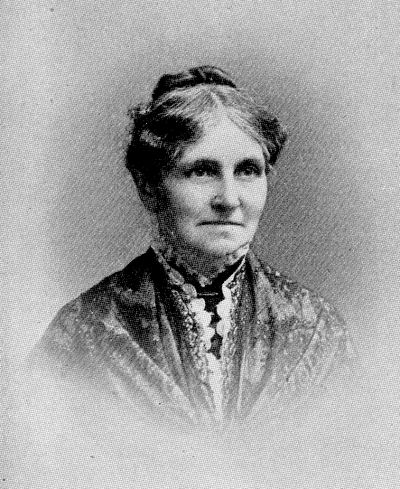This is a transcription of the Amelia E. (Bennett) Parker biography from New Hampshire Women: A Collection of Portraits and Biographical Sketches of Daughters and Residents of the Granite State, Who are Worthy Representatives of their Sex in the Various Walks and Conditions of Life, The New Hampshire Publishing Co., Concord, NH, 1895, page 173.

Amelia E. (Bennett) Parker
THERE are diverse types of admirable womanhood in New Hampshire, but the one that is perhaps the most truly representative, is the woman who “looks well to the ways of her household,” who is a sympathetic wife and mother, yet who keeps in touch with the outside world by intelligent reading, and is always ready to lend a hand for the good of the community in which she lives. This characterization, so especially applicable to the subject of this sketch, fits many a daughter of the commonwealth who deserves a place in any record of New Hampshire women. Amelia E. Bennett was born October 26, 1827, in Dummerston, Vt., to Aden and Angeline (Houghton) Bennett, but in early childhood she came to New Hampshire with her widowed mother and two brothers. She had the best education then obtainable, and being an exceptionally bright pupil, she grasped everything within her reach. She taught most successfully from the time of leaving school till her marriage, October 24, 1847, to Charles Parker of Lisbon. Although Mrs. Parker was never physically strong, she has dispensed a generous hospitality through a long married life, not only to friends but to strangers, and those in need. Of her four children, three are now living, Mrs. A. B. Woodworth, Harry E. Parker, and Mrs. T. J. Walker. These children will never forget the lessons they learned in human rights from the household discussions of the mother and father, who ardently embraced the anti-slavery cause when it was an unpopular one. Mrs. Parker’s fondness for intellectual improvement is evinced by the fact that after her children were married and gone from home, she took up the Chautauqua literary course for four years, doing more than the prescribed work, thus enjoying late in life the means of culture longed for, hut impossible of attainment at an earlier time. Mrs. Parker is not only benevolent and friendly, but she is of a deeply religious nature, being an active and influential member of the Congregational church.
